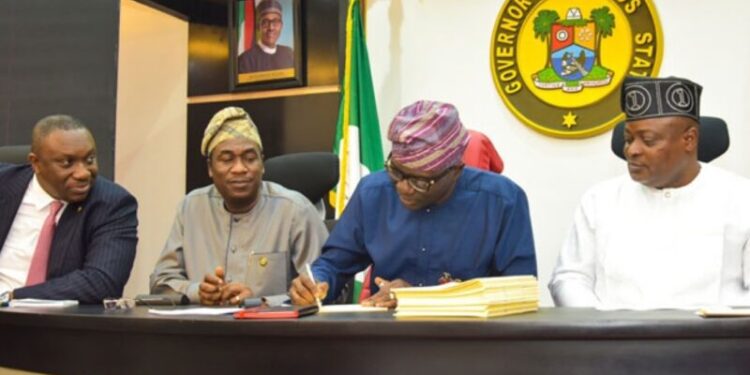Lagos State Governor, Babajide Sanwo-Olu, on Tuesday, signed into law the Lagos State Electricity Bill 2024, saying the bill’s sole aim is to ensure independent power supply to residents.
Sanwo-Olu at the signing held in Lagos House, Alausa, Ikeja, said the implementation would start in the next six months.
“The objective of the law includes establishing a Lagos Electricity Market that is technically sound, financially viable, and well-regulated, ensuring access to affordable, reliable, and sustainable electricity for all citizens.
“The law will allow establishment of critical institutions to manage and oversee the electricity market which include the Lagos State Electricity Regulatory Commission, for independent oversight, regulatory compliance and licensing.
“I will describe the law as a watershed in the production and distribution of electricity in the state, this will enhance productivity of our dear beloved Lagosians.
“With the establishment of agencies like the Lagos Independent System Operator (ISO) for ensuring system reliability and operational efficiency
“Also the Lagos State Electrification Agency is saddled with expanding electricity access to underserved communities,” he said.
Similarly, Mr Sabur Oluwa, Chairman, House Committee on Energy and Mineral Resources, Lagos State House of Assembly, said the bill sought to provide for the creation and administration of Lagos electricity market.
Also, Mr Biodun Ogunleye, the Commissioner for Energy and Mineral Resources, said the implementation of the law is scheduled to commence within six months after securing the Federal Government’s approval.
The News Agency of Nigeria (NAN) reports that the Lagos State Electricity Law 2024 is a comprehensive plan of Gov. Babajide Sanwo-Olu’s resolve to address longstanding challenges in the energy sector.
The law would lay a robust foundation for economic growth, fostering industrial growth, improved quality of life, energy equity, economic prosperity, and environmental sustainability.
The Electricity Act enables sub-national governments to generate and distribute electricity.
Before signing of the bill, Lagos electricity bill had a demand of about 12,000 megawatts (MW), which is about 90 per cent of the current national installed 13,000MW capacity.
NAN reports that the current 4,000MW being targeted by the government is only 13.33 per cent of the actual needs of the commercial city.
Present at the signing of the bill were; the Deputy Governor, Dr Femi Hamzat, Attorney General and Commissioner for Justice, Pedro Lawal and Commissioner for Information and Strategy, Gbenga Omotoso, among others. (NAN)











